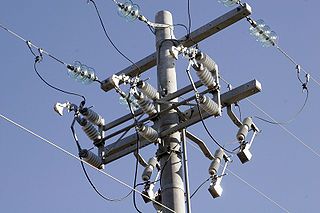The Regulation of Power Utilities
When I was in Boston last week, I had dinner with Bridge Energy Group’s Director of Regulatory Strategy and Compliance David O’Brien. We were joined by an old friend of mine from high school, so we didn’t talk too much “shop,” but David said something I found interesting about his core area of expertise, i.e., the regulation of electric power utilities. “Remember, Craig,” he began, “We created the power utilities the way they are. Yes, they’re risk-adverse, but that’s a product of the structure we demanded: just give us reliable, low-cost power. We’re giving you as much money as you need to perform that service, and not a dime more.”
Good point. Like so many other things in life, when we look at things fairly and objectively and try to take full responsibility, we see that most of the things that are antagonistic to our aims are ultimately the result of our own manufacture. This is true at a personal level, but also on an international scale. Look at the current situation in Afghanistan (with the Taliban) and Iran (apparently aspiring to a nuclear weapon). If we hadn’t messed with their governments in the first place, it’s likely that neither of these situations would exist. More broadly, our military leaders tell us that our presence in the entire region is fanning the flames of terrorist sentiment.
Be this as it may, David is 100% correct about the power utilities, i.e., that we tend to blame them for everything that goes wrong, even though they’re doing precisely what we commanded. Even in the case of outages from storms, we somehow assume that the utility isn’t doing its job. Perhaps we need to stop blaming, and come to a better understanding of exactly what we’d like these folks to do on our behalf.
David and I have agreed to speak on the phone sometime soon, which will provide me an opportunity to really dive into this area.


“More broadly, our military leaders tell us that our presence in the entire region is fanning the flames of terrorist sentiment.”
That is a valid concern, and one that has received too little attention.
When terrorists use suicide bombers to kill innocent people, it is the fault of the terrorists; about that, there can be no question. However, when we do things that inflame hatred, we are making it easier for terrorists to recruit more terrorists. It may be that we could reduce the threat of terrorism by modifying our foreign policies to avoid inflaming hatred.
That doesn’t mean that we should all be pacifists. Sometimes there is little choice but to take action that will be resented, but we should carefully consider all the possible consequences. We cannot always be right; sometimes we will make mistakes. That has to be accepted.